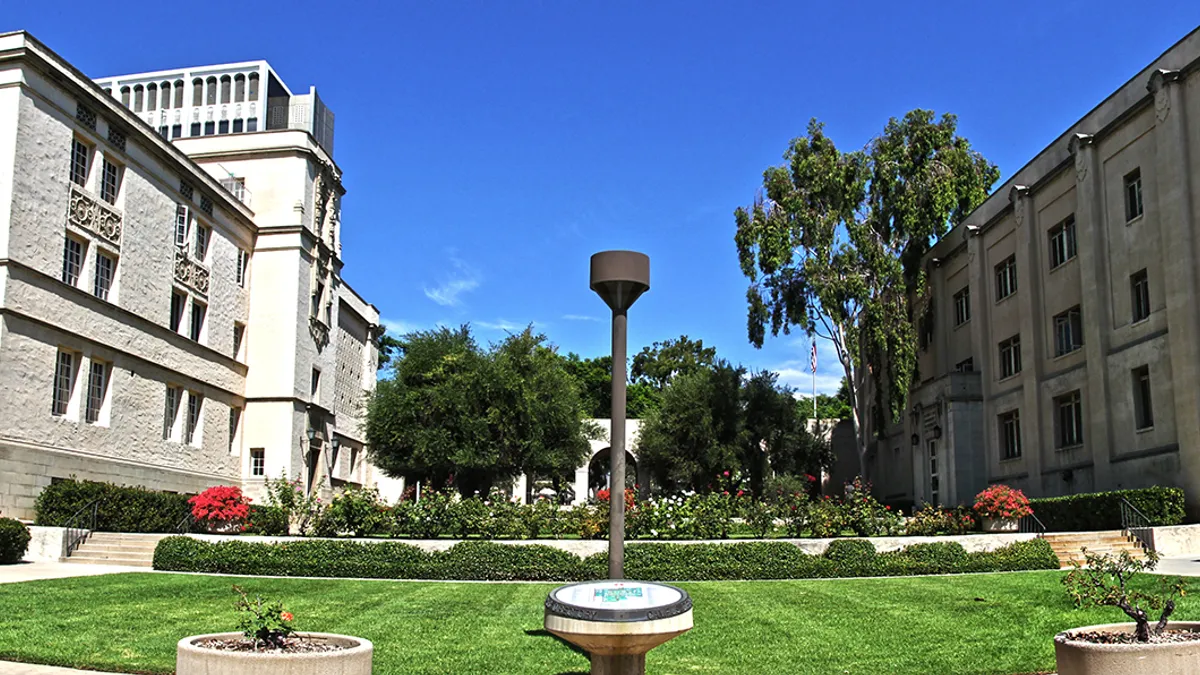Dive Brief:
- The California Institute of Technology will not review SAT and ACT scores of undergraduate students applying for admissions through fall 2025, extending its pandemic-era kibosh on entrance exams, it announced last week.
- The prestigious private research institution in Pasadena initially shifted to test-free admissions in June 2020, as the spread of the coronavirus shut down typical exam sites.
- CalTech said an internal study revealed standardized test scores “have little to no power” predicting academic performance in required mathematics and physics courses for first-year students in the institute’s core curriculum.
Dive Insight:
CalTech is one of the most prominent institutions that have adopted test-free admissions, meaning it won't review assessment scores. Both of California’s four-year public systems, the University of California and California State University, also permanently won’t consider scores.
Early in the pandemic, many other colleges moved to test-optional practices, in which they didn't require SAT or ACT for admissions but would still review submitted scores.
Test-optional and test-free policies persist, even as coronavirus-related restrictions ease. More than 1,700 colleges aren’t mandating test scores for admission in fall 2023, according to FairTest, an organization advocating for limited uses of standardized assessments. Its count includes colleges that historically have never asked for scores.
CalTech initially dropped entrance exams as an acknowledgement of students’ inability to sit for the tests during pandemic building closures. It announced a two-year testing moratorium in June 2020, which last year it then extended through the fall 2023 enrollment cycle.
The institute said in a statement the decision to continue the testing ban stems from a “rigorous internal analysis” of the previous seven cohorts of first-year undergraduates and their academic results. This encompasses students who matriculated before and after CalTech began test-free admissions.
Sticking with these policies will allow CalTech to keep studying links between test scores and academic performance, it said.
Caltech said the predictive power of assessment scores “appears to dissipate as students progress through the first-year core curriculum.”
"A consensus has developed among faculty and professional staff involved in admissions at Caltech,” Jared Leadbetter, environmental microbiology professor and chair of the institution’s first-year admissions committee, said in a statement. “That is, that numerous other key attributes of applications serve as stronger indicators of the potential for student success here.”
This was the opposite conclusion drawn by one of CalTech’s peers, the Massachusetts Institute of Technology, which in March announced it would revive admissions testing requirements. MIT said test scores helped predict students’ academic success.
Critics of the SAT and ACT argue the exams slant toward affluent students who can afford to boost their scores with exhaustive test preparation and then box out their disadvantaged peers. The testing providers, the ACT and College Board, which administers the SAT, maintain the tests are not discriminatory and can connect students with scholarship opportunities.















